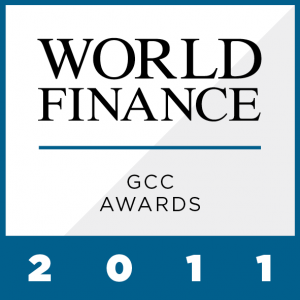Sustainability Awards 2020

It used to be the case that the sole focus for most investors was making a profit. Following this, it became fashionable to worry about things like negative externalities, such as the impact companies had on society and the planet. Today, sustainability has well and truly made its way into the mainstream; companies all over the world are making sure they take this into account in relation to their products and services.
Back in 2015, the UN launched its Sustainable Development Goals (SDGs). This collection of 17 ambitions, to be achieved by 2030, covers areas like eradicating poverty, boosting education and supporting clean energy. Many banks have signed up to align their strategies with the SDGs, understanding that they have a huge amount of sway in terms of deciding which businesses receive funding.
While much of the sustainability debate understandably focuses on environmental issues, companies are realising that looking after their human capital is key to long-term success
But even considering the huge increase in prominence that sustainability has gained, there remains much work to be done. In environmental terms,
Careful consumption
In 2020, therefore, it is likely that more businesses will concentrate on delivering services and products that enable consumers to live more sustainably. According to a 2019 survey by ING, titled
For companies to address this change in demand, they should first review their product portfolio, exploring whether sustainability can be integrated in a better way. Airline companies, for example, may look at ways of improving the fuel efficiency of their craft; fashion brands could start making clothing from recycled materials. Organisations should also consider the influence they have on consumer behaviour. As well as promoting a new product, marketing materials could focus more on how it has been sustainably produced or what environmental, social and governance (ESG) efforts the company is making.
People first
The
Improving working conditions, making sure that all members of staff receive a living wage and offering the right support, whether in terms of mental health or flexible working, may increase company expenditure in the short term. However, these changes are sure to pay off in the future by creating an environment in which employees can perform at their best.
If businesses want to improve sustainability in terms of employee wellbeing, one of the first things they need to do is listen. It may sound simple, but many members of staff struggle because their workplaces simply do not have channels in place that let them share the challenges they are facing.
Organisations are likely to start collecting more data on their employees’ state of mind, which can indicate whether initiatives aimed at improving staff wellbeing are working. Privacy, of course, will be of paramount importance here, but workplaces cannot look after their employees if they are not aware of any issues.
Making an impact
Many businesses are left with a dilemma when it comes to sustainability. Most would, in an ideal world, love to reduce their carbon footprint and energy consumption, but plenty also rely on a continuous cycle of consumption for their revenues. The fashion industry, for example, uses 1.5 trillion litres of water every year. Using current manufacturing processes, cutting this down ultimately means fewer clothes being bought. Other sectors, like tourism and agriculture, are facing similar quandaries.
While much of the sustainability debate understandably focuses on environmental issues, companies are realising that looking after their human capital is key to long-term success. In 2020, this trend is only likely to accelerate.
While the decision to take sustainability seriously in the finance sector should be welcome, it is essential that the new ESG values being espoused by firms are more than just marketing slogans. In 2020, banks will be challenged more than ever to demonstrate that sustainability is about action, not just words.








